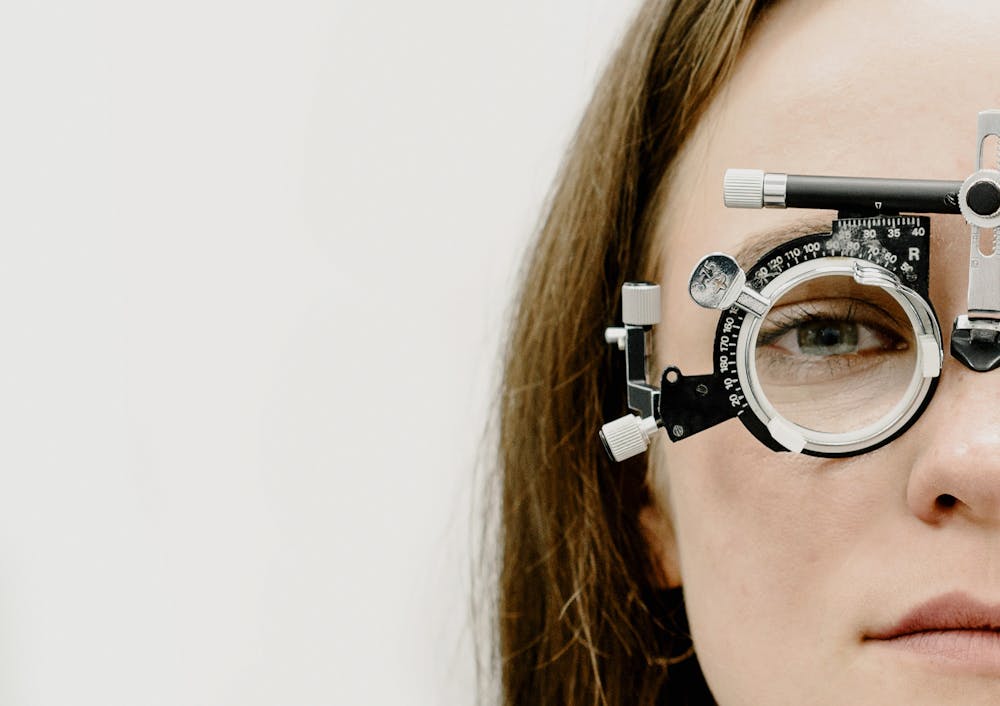In the digital age, where screens dominate much of our daily lives, maintaining good eye health is more crucial than ever.
Did you know more than 12 million people above 40 years in the United States have vision impairment? Surgeons suggest that early detection and timely treatment can be really helpful and cost-effective.
From proper nutrition to regular check-ups, several strategies can help preserve your eyesight and prevent common eye problems.
Here’s a comprehensive guide to keeping your eyes healthy. Keep on reading.
Understand the Importance of Eye Health
Eye health is crucial not just for maintaining clear vision but also for overall quality of life. The eyes are not only windows to the world but also windows to our health, providing clues to systemic issues like diabetes and hypertension.
Neglecting eye health can lead to diminished sight or severe conditions such as glaucoma, which can result in blindness. Furthermore, good vision supports educational and professional opportunities, safe driving, and enjoyable leisure activities.
Therefore, regular eye care preserves more than just visual acuity; it sustains independence and enhances life’s quality across many aspects.
Regular Visits With Eye Doctor
Scheduling regular visits with your eye doctor is crucial for maintaining optimal eye health. Your doctor can help with early detection and treatment of potential eye conditions before they develop into more serious problems. And if you’ve any serious eye condition like cataracts; you must consider visiting Illinois as it has the top eye surgeons at Chicago Cornea which are quite popular for their effective results.
These experts assess your vision, prescribe corrective lenses if needed, and check for eye diseases such as glaucoma, cataracts, and macular degeneration. Regular examinations are especially important as you age since the risk of eye diseases increases with age.
Proper Nutrition
Diet plays a crucial role in eye health. Nutrients like omega-3 fatty acids, lutein, zinc, and vitamins C and E can help ward off age-related vision problems like macular degeneration and cataracts.
Regularly consume:
- Green leafy vegetables such as spinach, kale, and collards
- Salmon, tuna, and other oily fish
- Eggs, nuts, beans, and other non-meat protein sources
- Oranges and other citrus fruits or juices
A well-balanced diet also supports weight management, which reduces the risk of obesity-related diseases affecting eyesight, such as diabetic retinopathy.
Manage Screen Time
With many jobs and hobbies involving computers, digital eye strain has become increasingly common. To reduce risk:
- Follow the 20-20-20 rule: every 20 minutes, look at something 20 feet away for at least 20 seconds.
- Ensure your computer screen is slightly below eye level and about 20 to 24 inches from your face.
- Use anti-glare screens or glasses and adjust lighting to reduce glare from the screen.
- Keep your eyes moist with drops if needed, and remember to blink often.
Wear Protective Eyewear
Sunglasses are essential for protecting your eyes from harmful UV rays. Look for sunglasses that block at least 99% of UVB rays and 95% of UVA rays. Similarly, if you work in hazardous or airborne material environments, wear protective goggles to prevent injury.
Quit Smoking
Smoking increases the risk of developing age-related macular degeneration, cataracts, and optic nerve damage, all of which can lead to blindness. If you smoke, quitting is one of the best steps you can take for your eyes.
Use Adequate Lighting
Straining to see in dim lighting can accelerate eyesight deterioration. Make sure your environment is well-lit to prevent eye strain during tasks such as reading or working. At night, use a soft, direct light from a lamp for reading to prevent glare.
Exercise Regularly
Physical activity can help prevent conditions like high blood pressure, diabetes, and high cholesterol, which can affect your eyesight. Exercise improves blood circulation, which improves oxygen levels to the eyes and the removal of toxins.
Be Aware of Eye Fatigue
If you experience tired, sore, or irritated eyes regularly, it may be a sign of eye fatigue. Reasons can include excessive screen time, insufficient lighting, or the need for prescription glasses or an adjustment to your current prescription. Listen to your body, and if symptoms persist, consult your eye doctor.
Educate Yourself About Family Health History
Many eye diseases are hereditary. Knowing your family’s health history can help you take precautions. If conditions like glaucoma and macular degeneration are common in your family, regular screenings become even more crucial.
Wrapping It All Up
Maintaining eye health is a multi-faceted approach that involves regular medical check-ups, proper diet, adequate eye protection, and lifestyle adjustments.
By implementing these tips, you can help preserve your eyesight and prevent many common eye issues.
Remember, early detection through regular eye exams plays a crucial role in maintaining optimal eye health. Don’t take your eyes for granted—take proactive steps today to keep them healthy for years to come.





